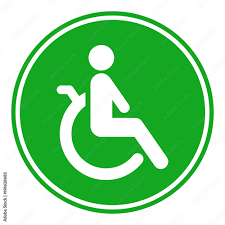History
BACKGROUND
Coffee was first planted in Kenya at Bura in Taita Hills in 1893 and thereafter, grown at
Kibwezi, under irrigation in 1900, and at Kikuyu near Nairobi in 1904. In the 1930’s,
following the Devonshire White Paper Report of 1923, the Colonial Government allowed
controlled planting of coffee outside the European settled areas in Kisii and Meru in
particular.
By the time Kenya attained its independence in 1963 the coffee industry was playing a significance role in the economy by among other things being the leading foreign exchange earner. At that time, there was no statutory control, in terms of crop husbandry, production, processing, grading and marketing. The marketing of coffee was handled by individuals and through rudimentary institutions between 1900 and 1933. On request by coffee farmers, the colonial government enacted the Coffee Industry Ordinance in 1932, and established Coffee Board (CB) in January 1933. The role of Coffee Board was regulatory and promotion, that is, licensing, inspectorate and promotion.
On the other hand, the Kenya Coffee Auctions, as a mode of selling Kenyan coffee, was established in 1934 and the liquoring department of Coffee Board was created in 1935 to enhance the grading and selling of coffee. The first coffee auction was inaugurated in September 1935 when the first coffee was auctioned. The Coffee Marketing Board (CMB) was established under the Coffee Marketing Ordinance No. 6 of 1946 and became fully operational on 1 July 1947 to cater for the coffee marketing activities with its functions being central warehousing, sale of coffee at central auction, liquoring and financing.
Ordinance No 26 of 1960 consolidated the Coffee Industry Ordinance and the Coffee Marketing Ordinance into the Coffee Ordinance Cap 333. The Coffee Ordinance, Cap 333, commenced on 5 July 1960 when Coffee Board of Kenya (CBK) and CMB were established under the same law.
Act 13 of 1971 abolished the CMB and consolidated the function of coffee marketing with the regulatory functions of the CBK. Since then, CBK was controlling the industry up to July, 2001 when a new Coffee Act 2001 was enacted that specified new roles for CBK as an industry regulator.
Following the enactment of the Crops Act 2013 and AFA Act 2013, the Agriculture and Food Authority (AFA) was established as a State Corporation in the ministry of Agriculture, Livestock, Fisheries and Co-operatives. The Act consolidated the laws on regulation and promotion of agriculture and made provision for the respective roles of national and county governments according to the provisions of the Fourth Schedule of the Constitution of Kenya. The role of the Authority is to Regulate, Develop and Promote Scheduled Crops value chains for increased economic growth in Kenya. Coffee Directorate was established as a directorate under the AFA.


